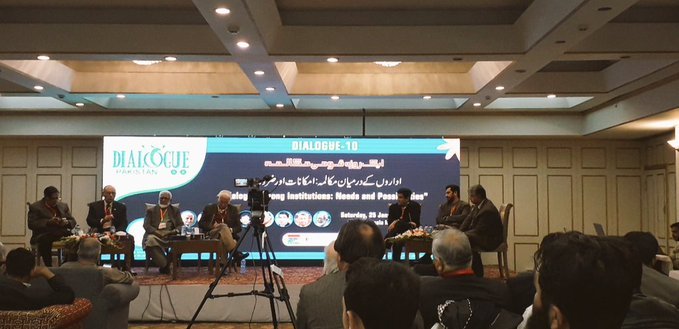
The event saw discussions on issues like, and related to, state, society, religion, constitutionalism, future of parliament, regional political landscape, freedom of expression, women’s rights, and student unions.
In the inaugural session titled The Need for Dialogue in Today’s Pakistan, Human Rights Commission of Pakistan (HRCP) said that in order to relinquish the clouds of despair that have blanketed the country, it is inevitable that dialogue is promoted in an environment that is open and not subject to any curbs. Dr Khaled Ahmed, senior journalist and columnist, said that democracy, in other words, advocates for the prevalence of free speech.
During the dialogue about the future of parliament, constitution and democracy, SAPM on Accountability Barrister Mirza Shahzad Akbar lamented how certain institutions and classes are targeted for the chaos prevalent in the country, for it is something that the entire society and all institutions are responsible.
Pakistan People’s Party MNA Shazia Marri said that diversity needs to be acknowledged and dialogue needs to be made an unavoidable prerequisite. She also said that the role of the parliament is equal to none and there is an ultimate need for supremacy and accountability. Balochistan former chief minister Dr Abdul Malik Baloch, and Awami National Party (ANP) former senator Afrasiab Khattak, said that a country where lawlessness prevails, it is necessary that we try our best to shift from being a security state to a welfare state for which brave and robust steps needs to be taken.
In the second session titled State, Society and Religion, Dr Qibla Ayaz, Dr Khalid Masud, Dr Dietrich Reetz and Dr Ammar Khan Nasir stressed that because when religious leaders are stripped of power they take to streets, it is vital that they be given the space that they as part of the country and representatives of Islam deserve.
In the third session titled ‘Have We Won the War Against Terrorism?’, speakers accentuated that the prevailing extremist ideology in the country needs to be confronted not through the use of force but by engaging all elements of the society in a dialogue and by taking into consideration in earnest their concerns.
In the fourth session titled ‘Is Our Environment Conducive for Creative Expression?’ Iftikhar Arif said that problems pertaining to creative expression in Pakistan are on the rise for which the prevalence of dialogue is an utterly important prerequisite. Literature and art, the panelists vehemently argued, can help promote peace and tolerance.
In the fifth session titled ‘Economic Stability and Governance: Is 2020 the Year of Hope?’ discussing the future of economic trends in Pakistan, eminent journalist Ziauddin said that if Pakistan does not take prompt actions, its economic conditions will only worsen.
Dr Qaiser Bangali and Afshan Subohi said that the elite don’t feel that they belong to the country and that they lack a feasible vision for the country. Rafiullah Kakar said that one of the main problems we are faced with in this regard is that we are politically disorganised which is a plight responsible for most of the chaos prevalent in the country.
In a session titled ‘Youth, Student Unions and Emerging Political Trends’, it was argued that before student unions, whose importance cannot be brushed under the rug, are revived, it is necessary that students are taught as to how do they ought to put forth their concerns in a manner that is not only respectful, but also worth taking into consideration.
In the next session titled ‘Political and Strategic Landscape of South Asia: Is the Region in a Parliament State of Change?’, former ambassador Aziz Ahmad Khan stressed that Pakistan needs to improve its relation with India, and that although talks with the Taliban are not unproblematic, we need to engage them in healthy discussions and bring them on one table. PIPS Director Amir Rana argued that the Indo-Pak conflict has consequences for, and bears upon, the whole of South Asia. He further said that the meeting of the leaders of India and Pakistan during the upcoming SAARC summit will prove extremely inevitable for the pervasiveness of smooth and sound relations between the two countries.
In The Debate on Freedom of Expression; Where Does the Problem lie?, the 8th session of the day, Senator Mir Hasil Bizenjo pervasiveness is granted only to one narrative throughout the country to which all political parties and intellectuals, irrespective of their kind, have turned a blind eye. Mazhar Abbas, senior journalist and renowned political analyst, that the tradition of dissent is nowhere to be found in the political parties that, unfortunately or otherwise, have become custodians of democracy. Munizae Jahangir, Senior Anchorperson Program Spot Light AAJ News, mourned the absolute absence of freedom of speech and expression in all walks of life.
She further said that lack of space for the youth and journalists coerces them into taking to social media to posit their concerns and thoughts which, in turn, becomes grave for them. Khursheed Ahmad Nadeem, senior analyst and columnist, argued that free speech has been brushed under the carpet by the state, and that if Pakistan is to become a truly democratic country, free speech needs to be made more of a norm.
In the 9th session titled Women’s Rights Movements: Is there Any Hope for End of Gender Discrimination?, Dr Samia Raheel Qazi mournfully said that women in Pakistan have always been treated as inferior creatures and have been stripped of their due rights. She accentuated that it is the need of the hour that they be given the space that they deserve and are given voice as the Constitution of Pakistan guarantees them. Romana Bashir, Member Punjab Commission on Status of Women, said that there have been movements purporting at guaranteeing the rights of women and ensuring that they are given enough opportunities. She appreciated the fact that religious leaders have also supported their work which, she argued, is a big change. Kishwar Naheed, a poetess and activist, argued that a great many movements have been created against women, but that regardless of them, they have fought and have ascertained the provision of their due rights to them. She suggested that talks of sexual violence and relations, although considered taboo, need to be made possible and not too arduous tasks to undertake.
In the last and most interesting session of the day, Dialogue Among Institutions: Needs and Possibilities, experts in defence, politics and journalism addressed the audience.
Consecutive parliaments have failed to bring home the bacon because governments have not given them enough time to function, legislate and deliberate upon issues directly related to the country, Defence Analyst Lt Gen (retd) Amjad Shoaib.
He further said that to say that it is the army that gets to decide the foreign policy of the country is absurd, and that it only issues recommendations upon the request of the government upon whom they are not binding.
Justice (retd) Ali Nawaz Chauhan, former chairman National Commission on Human Rights Pakistan and ex CJ Republic of Gambia said effective efforts were not made for coherence between institutions.
PPP Secretary General Farhatullah Babar held the military establishment responsible for the lack of dialogue among institutions, and that it is utterly significant that civil supremacy be made stronger and more possible.
Published in The Express Tribune, January 26th, 2020.
1725936122-0/Untitled-design-(14)1725936122-0-405x300.webp)


1725931661-0/Katy-(1)1725931661-0-165x106.webp)

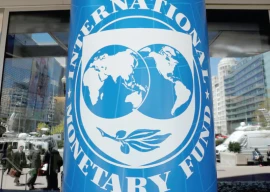


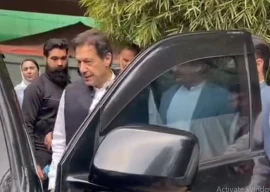

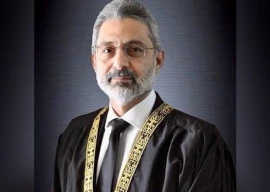
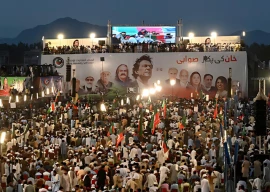
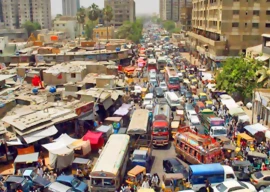
1725859023-0/Untitled-design-(38)1725859023-0-270x192.webp)
1725879396-0/Untitled-design-(27)1725879396-0-270x192.webp)
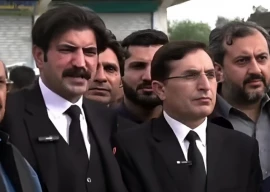
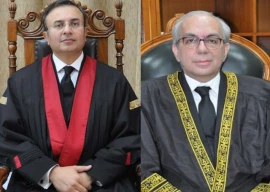
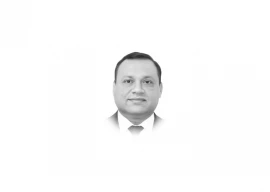



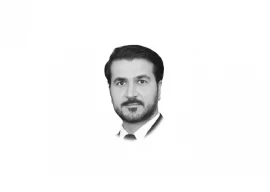

COMMENTS
Comments are moderated and generally will be posted if they are on-topic and not abusive.
For more information, please see our Comments FAQ